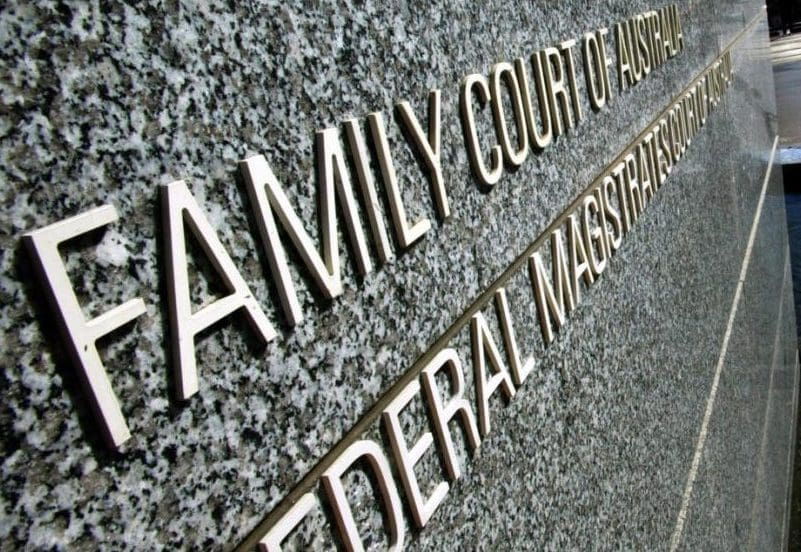When is Family Dispute Resolution required?
In Australia, mediation is the preferred approach for families, where the parents have separated and cannot come to an agreement in relation to the care, welfare, and wellbeing of the children.
Mediation presents an opportunity for relevant family members to engage in a structured meeting, in order to discuss disputes and express their interests. An impartial Family Dispute Resolution (FDR) practitioner acts as a neutral third party to guide this process. The practitioner aims to encourage all participants to actively engage in the discussion and ensures each party’s voice is heard.
This same practitioner will issue a Section 60I Certificate if the mediation is unsuccessful. If the Certificate is issued, this then allows for parties to initiate proceedings in the Family Court.
What is a Section 60I Certificate?
A Section 60I Certificate is issued by an FDR practitioner in circumstances where (Family Act 1975 section 60I(8)):-
- A party did not attend FDR, due to the other party’s failure or refusal to attend;
- A party did not attend FDR, because the practitioner considers FDR inappropriate in the given circumstances;
- All attendees made a genuine effort to come to a resolution;
- A party did attend FDR, but the other party did not make a genuine effort to come to a resolution; or
- A party did attend, but the practitioner considers it inappropriate to continue with FDR.
The Certificate is a requirement under the Family Law Act 1975 in order to show proof of a genuine effort made to resolve disputes by FDR. This ensures that parents, who are not in agreement on their parenting arrangements, are required to attend mediation. If parties have attempted to come to a resolution, but it was unsuccessful, a Certificate will allow parties to start an application in the Family Court.
When is a Section 60I Certificate not required?
The Certificate is not required if:-
- A party wishes to file Consent Orders, and an agreement has already been reached;
- A party is responding to another party’s application;
- The other party has not adhered to the obligations outlined in the Court Order, and a party wishes to make a Family Court application;
- One or both parties are unable to effectively engage in FDR;
- There are concerns of family violence or abuse; or
- The matter is urgent.
Other circumstances which may not require a Certificate can also be found in Section 60I(9) of the Family Law Act 1975.
If you or someone you know wish to discuss this issue further, then please do not hesitate to contact us on 02 8717 8700.
 A bill to merge the Family Court and Federal Circuit Court was approved in the Senate last week. The decision has proven controversial, with many stakeholders, including retired judges, opposing the merger as a ‘band-aid’ solution that will prejudice family law matters to unspecialised judgment and even longer delays.
A bill to merge the Family Court and Federal Circuit Court was approved in the Senate last week. The decision has proven controversial, with many stakeholders, including retired judges, opposing the merger as a ‘band-aid’ solution that will prejudice family law matters to unspecialised judgment and even longer delays.
What is (or was) the Family Law Court of Australia?
The Family Law Court of Australia was established in 1976 under Chapter 3 of the Australian Constitution by the Family Law Act 1975. Although it was infamously bombed in 1988, the creation of the Family Law Court was generally viewed as a landmark in not only the Australian justice system, but worldwide. The Family Law Court was significant because it highlighted the need for specialist legal attention in circumstances that are often confronting, complex and deeply emotional for parties.
Why merge the two courts?
It might be argued that merging the Family Law Court of Australia and the Federal Circuit Court of Australia will streamline resources that would otherwise be spread between two Courts. Alternatively, it could be argued that by combining the Courts into one broader jurisdiction, more urgent matters involving immigration will take priority. This may have a reverse-effect on making the Court system efficient, pushing matters that are ‘less urgent’ down an ever-expanding list.
A shift into a single Court might, however, take some pressure off Family Court judges, who have been reported as dealing with up to 600 cases on their dockets at one time. However, there is criticism that whilst judges might not be as far spread between cases, family law matters are at risk of being handed to judges that lack specialist experience in negotiating intricate areas of family law. There are arguments being made that a new unified Court will provide some passage of relief to rural, regional and remote communities that were previously unable to access the Family Court at all.
The safety of vulnerable people should always be a priority when making legislative changes to Family Law legal processes in Australia. Arbitration and mediation processes present cost-effective and efficient alternatives to attending Court that may help to reduce some of the volume moving through the new system in the future.
If you would like to discuss anything further with our experts at Freedman & Gopalan Solicitors, call us on 02 8999 9837.
 The NSW Government is set to scrap lockout laws in Sydney’s Kings Cross in a bid to revitalise the night-time economy.
The NSW Government is set to scrap lockout laws in Sydney’s Kings Cross in a bid to revitalise the night-time economy.
The controversial lockout laws, which were introduced in 2014 to quell alcohol fuelled violence, will be lifted as of 8th March 2021.
Venues in the area will soon be able to accept patrons after 1.30am and serve drinks in glasses, rather than plastic cups. The ‘last drinks’ rule will remain but will be moved to 3.30am.
The lockout laws were implemented by former Premier, Barry O’Farrell, after two Sydney teenagers were killed in one punch attacks. While violence in the area has since declined, a 2019 parliamentary inquiry found NSW may have been be foregoing up to $16 billion in economic activity as a result of the laws.
The controversial changes follow NSW Premier, Gladys Berejiklian’s, vow to revive Sydney’s “vibrant night-time economy.” Berejiklian told the Sydney Morning Herald that she expected the adjustments would allow Kings Cross “to continue to evolve into a vibrant lifestyle and cultural destination.”
While the Premier moved to ease restrictions in Sydney’s CBD and Oxford Street in January 2021, lockdown laws remained in Kings Cross on advice of law enforcement and health authorities.
Independent MP for Sydney, Alex Greenwich, welcomed the new conditions, telling the NewDaily that the area had changed since 2014 when lockout laws were introduced.
“The 24-hour beer barns are gone, and a more sophisticated dining, small bar, and entertainment offering is ready to thrive,” he said.
In an economy damaged by government restrictions and COVID constraints, these changes could well be the kiss of life for Kings Cross.
If you would like to discuss anything further with our experts at Freedman & Gopalan Solicitors, call us on 02 8999 9837.
 If you have children and are going through a divorce, you may be required to obtain a Section 60I Certificate.
If you have children and are going through a divorce, you may be required to obtain a Section 60I Certificate.
But what is this mysterious legal document and why do you need one? Here’s all you need to know about Section 60I Certificates.
What is a Section 60I Certificate?
If you want to file or make changes to a parenting Order, you will first need to obtain a Section 60I Certificate. The Certificate recognises that you and your former partner have attempted Family Dispute Resolution (FDR).
FDR is a special type of mediation that helps parties to come to their own parenting agreements and settle their own disputes. You are legally required to attempt FDR before taking your matter to court. If FDR fails and you would like to seek a parenting Order, your Application must include a Section 60I Certificate.
Your Certificate, which will look like this, will be placed in one of five categories. This will depend on the outcome of your FDR. The categories are:
- You attended FDR and all attendees made a genuine effort to resolve the issue(s)
- You attended FDR but you or your former partner did not make genuine attempts to resolve the issue(s)
- You did not attend FDR because your former partner refused or failed to attend
- You did not attend FDR because the mediator decided that it was inappropriate in the circumstances
- You started FDR, but the mediator cancelled it partway through because they did not believe it was appropriate to continue
Why do I need a Section 60I Certificate?
If you want to apply for a parenting Order, the Family Law Act 1975 requires that you obtain a Section 60I Certificate. This is unless the court is satisfied that an exemption applies.
When will the court waive the requirement for a Section 60I Certificate?
There are very few reasons why a Court would accept an Application for filing without a Section 60I Certificate. The requirement will only be waived if you file an affidavit outlining that:
- your matter is urgent,
- there is evidence of family violence or a threat of family violence,
- you or your partner is unable to participate effectively in FDR, due to incapacity or physical remoteness, or
- your application relates to the breach of an existing Order made in the last 12 months. There must be reasonable grounds to believe that one party has shown a serious disregard for their obligations under that Order.
How long does it take to get a Section 60I Certificate?
The amount of time it will take to receive a Section 60I Certificate will depend on many factors, such as the demand for FDR services, and how quickly you and your former partner begin the process.
Will my Section 60I Certificate expire?
Your Certificate will expire after 12 months. After this time, you will need to recommence the FDR process and seek another Certificate before filing parenting Orders.
How do I get a Section 60I Certificate?
A Section 60I Certificate can only be issued by an accredited Family Dispute Resolution Practitioner. To find a practitioner, you can contact Relationships Australia or research private FDR practitioners near you. For more detailed information on Section 60I Certificates, read this fact sheet.
If you need help finding a registered FDR practitioner, or you would like more information, please do not hesitate to contact us on 02 8999 9809.
